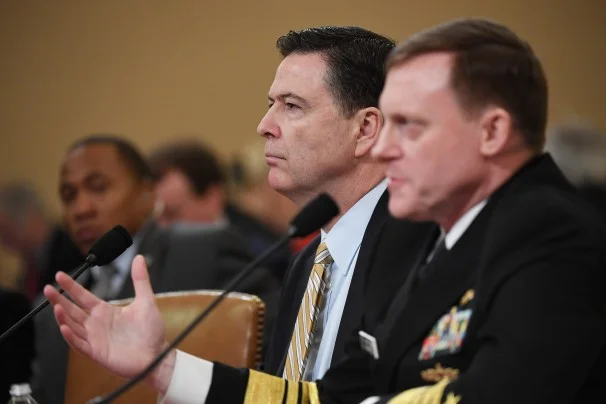List of candidates set for French election By Nathan Richmond
The stage is set for the first round of the French election to be held on April 23. The Conseil Constitutionnel (Constitutional Court) has certified a list of 11 candidates who qualified to be on the ballot. Under the rules, candidates must secure the signatures of 500 sponsors (parrainages) who must be elected officials. Further, the 500 signatures must come from at least 30 different départements (there are 96 in France and 5 overseas) and no more than 50 sponsors can be from a single département. The deadline for submitting sponsorships was March 17th. A new feature this election cycle is that all signatures (sponsorships) are now made public.
Marine Le Pen (AP)
There are five major candidates: LePen, Fillon, Macron, Hamon, and Mélenchon. Any of these five might qualify for the second round to be held on May 7, but as of now, polls indicate that it will likely be LePen and Macron. (Only the top two from the first round advance). Current polls, as of March 18th, have LePen at 26.3%, Macron with 25.7%, Fillon with 18.3%, Hamon at 13.5%, and Mélenchon with 11.5% support in the first round. The current polls also favor Macron over LePen in the second round by 61.3% to 38.7%.
Among the minor candidates, there were two surprises in the Conseil Constitutionnel list. In addition to the minor candidacies of Arthaud, Asselineau, Cheminade, and Dupont-Aignan, two unexpected candidates qualified. Phillipe Poutou, of the far left New Anticapitalist Party qualified. The majority of Poutou’s sponsors signed in just the last few days. And Jean Lasalle from the centrist Modern Democrats (MoDems) Party also qualified. Lasalle was a surprise because his party’s leader, François Beyrou, is supporting Macron and has recently been campaigning together with him (Macron). These six minor candidates are expected to split about 5% of the first round vote and thus not qualify for the second round.
Presidential elections in France differ from American presidential elections in a number of ways, but at least one important American political innovation has been adopted. What is different about elections here is that for the most part the French don’t share their personal views about the candidates as openly as do Americans. Here there are no yard signs, no bumper stickers, and people are often genuinely surprised to find out how their friends or relatives voted if the elected is discussed at all. Here it is considered to be one’s private business and few ask others or share their own views. There are exceptions, of course, and social media may be helping to breakdown old habits.
On the other hand, France is importing at least one important American political innovation, the primary system (much to the disappointment of some here). In 2012 the Socialists (PS) adopted a primary system which current President François Hollande used to secure his party’s nomination. And this year both the Socialists and Les Republicains (LR) did the same with Hamon and Fillon winning their respective party’s nomination.
Nathan Richmond is Professor of Government at Utica College and currently resides in Southern France






